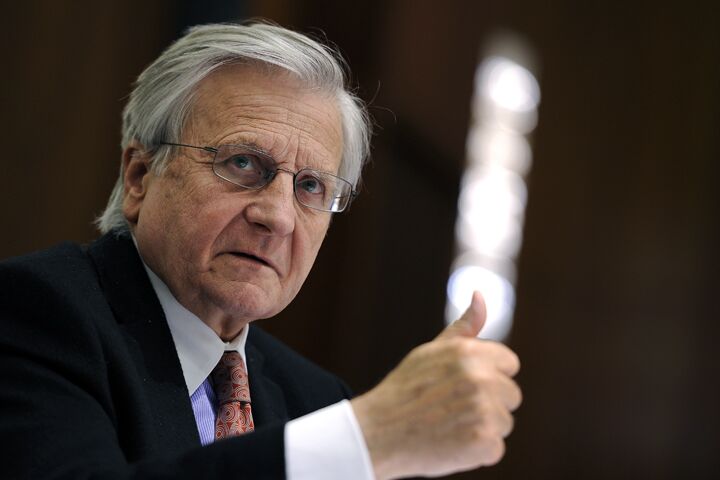
ECB Chief Calls for Pan-European Finance Ministry
European Central Bank head Jean-Claude Trichet was awarded this year’s Charlemagne Prize on June 2 for his role in stabilizing the eurozone. During his acceptance speech, Trichet outlined his dream for a future European Union Finance Ministry—with the power to “veto the budgets of debt-ridden eurozone countries,” according to Spiegel Online.
In the short term, Europe needs a “‘quantum leap’ in governance now,” he said.
“I have called, in the name of the Governing Council, on the Commission, the Council and the European Parliament to be very ambitious in reinforcing economic governance in the euro area,” he said.
Trichet argued that Europe’s economic difficulties meant that the eurozone needs a common authority that can override the elected governments of nations in economic crisis. A nation should be given a chance to sort out its affairs, he said, but if that fails another authority should be able to step in.
“One way this could be imagined is for European authorities to have the right to veto some national economic policy decisions,” he said. “The remit could include in particular major fiscal spending items and elements essential for the country’s competitiveness.”
This would mean a huge loss of national sovereignty. The people of a nation could vote for a tax cut, for example, or to build a new high-speed rail link, only to have it vetoed by the EU. That’s not to say that democracy means a nation is entitled to spend as much as it wants without regard to debt (though that often seems to happen). But what Trichet is proposing would mean that bureaucrats in Brussels would have more say in how a nation’s money is spent than elected politicians. If that isn’t a European superstate, then what is?
In the long term, Trichet wants the EU’s jurisdiction to go even further.
“In this union of tomorrow, or of the day after tomorrow, would it be too bold, in the economic field, with a single market, a single currency and a single central bank, to envisage a Ministry of Finance of the Union?” Trichet asked.
Trichet made it clear that he did not expect the overnight creation of such a Finance Ministry, but admitted that Europe desperately needed “a confederation of sovereign states of an entirely new type.”
This Finance Ministry wouldn’t necessarily administer all the taxation and spending for the Union, he said. However, it would oversee euro nations’ fiscal policies and represent the eurozone in international financial bodies.
If this happens, Trichet says it “will be decided by the people of Europe.” Presumably he means in the same way the European constitution, now known as the Lisbon Treaty, was decided upon by the people of Europe—rejected, but gone ahead with anyway.
Europe is tiptoeing toward fiscal union—a common economic government. As the Trumpet has pointed out for years, the euro was designed as a tool to force the nations of Europe into fiscal, monetary and political union. Editor in chief Gerald Flurry wrote in a February 2009 article, “Berlin has been planning for this crisis before it even adopted the euro. European elites knew it would eventually come. And they will soon present a solution.”
